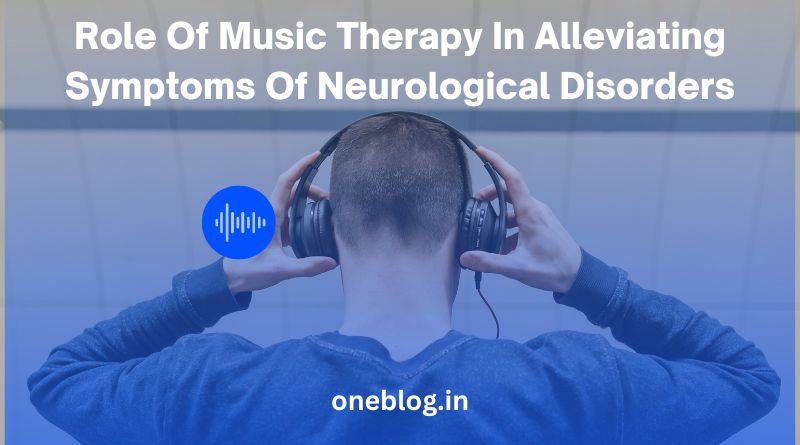Music has a profound impact on our emotions, cognition, and overall well-being. In recent years, the role of music therapy has gained recognition as an effective approach to supporting individuals with neurological disorders. This therapeutic intervention utilizes the power of music to address a wide range of symptoms and improve the quality of life for those living with conditions such as Parkinson’s disease, Alzheimer’s disease, stroke, and traumatic brain injury.
Role of Music Therapy in Treating Neurological Disorder

In this blog, we are going to explore the role of music therapy in alleviating symptoms of neurological disorders.
1. Emotional and psychological benefits: Music has the ability to evoke emotions and stimulate memories, even in individuals with neurological impairments. Music therapy provides a safe and supportive environment for individuals to express their emotions, reduce anxiety, and enhance their overall psychological well-being. Through active music-making or passive listening, individuals can experience relaxation, improved mood, and a sense of emotional release.
2. Motor rehabilitation and coordination: Neurological disorders can often impact motor function and coordination. Music therapy can be utilized to address these challenges by engaging individuals in rhythm-based activities and movement exercises. The rhythmic cues and structured patterns in music can help improve coordination, timing, and motor skills. For example, drumming or playing a musical instrument can enhance fine motor control, while dancing or rhythmic exercises can improve gross motor movements.
3. Cognitive stimulation and memory enhancement: Music has a unique ability to engage multiple cognitive processes, including attention, memory, and executive functioning. In individuals with neurological disorders, music therapy can be used to stimulate cognitive functions and enhance memory. Familiar songs and melodies can trigger memories and facilitate reminiscence, even in individuals with advanced memory impairment. Additionally, structured musical activities can improve attention, concentration, and cognitive flexibility.

4. Speech and language rehabilitation: For individuals with neurological disorders affecting speech and language, music therapy can be a valuable tool for rehabilitation. Singing or vocal exercises can enhance breath control, vocalization, and articulation. The rhythmic and melodic elements of music can support the natural flow of speech and aid in the relearning of language skills. Music therapy can also promote social interaction and communication through group singing or improvisational activities.
5. Stress reduction and pain management: Living with a neurological disorder can be physically and emotionally challenging. Music therapy offers a non-pharmacological approach to reducing stress, managing pain, and improving overall well-being. Listening to calming music or participating in music-making activities releases endorphins and promotes relaxation, leading to reduced anxiety and improved pain tolerance.
6. Social engagement and quality of life: Neurological disorders can often result in social isolation and reduced quality of life. Music therapy provides opportunities for social engagement and connection. Group music-making activities, such as singing in a choir or playing in an ensemble, foster a sense of belonging and create a supportive community. The shared experience of music can promote social interaction, emotional bonding, and a sense of purpose.
Also, read: Impact of Scent and Memory Association in Personal Experiences
It is important to note that music therapy should be conducted by trained professionals who specialize in working with individuals with neurological disorders. These therapists have the knowledge and expertise to tailor interventions to the unique needs and abilities of each individual.
In conclusion, the role of music therapy in alleviating symptoms and improving the quality of life for individuals with neurological disorders is clearly evident. Through emotional expression, motor rehabilitation, cognitive stimulation, speech and language rehabilitation, stress reduction, and social engagement, music therapy harnesses the power of music to support individuals on their journey toward improved well-being and enhanced neurological functioning.
Browse For SEO News





